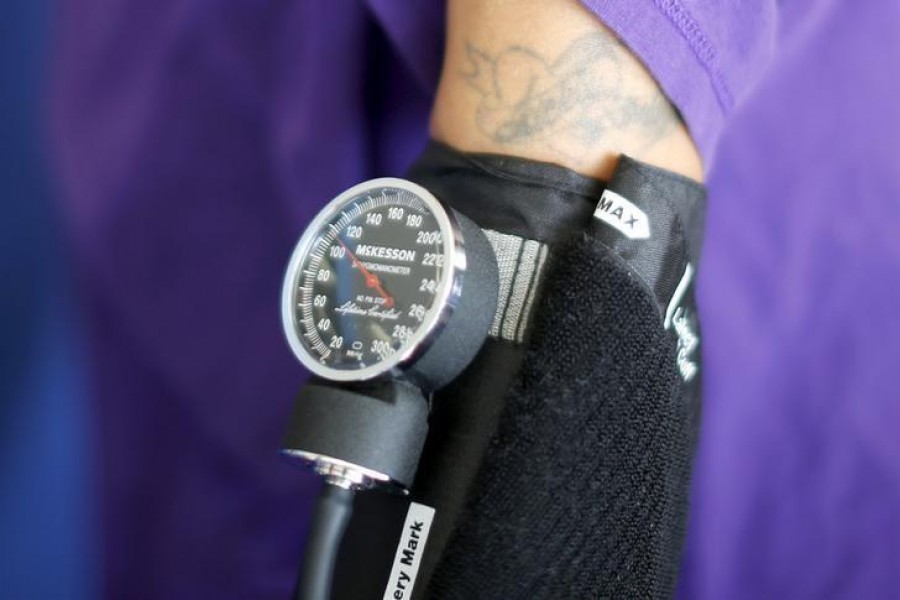
Published :
Updated :

More than 77-per cent hypertension patients receive treatment at private facilities while 14 per cent at public units, making disease controls difficult in Bangladesh, a study has found.
It shows about 98-per cent patients buy medicine in the private sector for inadequate supply of hypertension drugs at government facilities.
There are 20-million adult hypertension patients in Bangladesh which constitutes around 21 per cent of the total population.
Of them, 51 per cent do not know they have had the disease. Only 14 per cent of the patients have the disease under control.
Health experts have urged the government to ensure medicine supply for hypertension disease up to upazila health complex level as people do not take medicine because of the high price.
They called upon the government to make all the medicines available and affordable for the patients so that more patients are encouraged to take medicine.
The experts made the call during a webinar on the occasion of World Hypertension Day.
The day is usually observed on May 17, but it was observed on October 17 globally due to Covid-19.
The National Heart Foundation of Bangladesh marked the day with the theme 'Measure your blood pressure, control it, live longer'.
It hosted the webinar on Saturday morning, chaired by National Professor Brig (retd) Abdul Malik, founder and president of the foundation.
The event was aimed at raising awareness among the public and physicians for information, prevention, control and treatment of diseases related to hypertension.
Prof Sohel Reza Choudhury, head of epidemiology and research at the foundation, presented a keynote.
In his presentation, Mr Choudhury said 67 per cent of the total deaths here take place due to non-communicable disease (NCD).
Of the total NCD-induced deaths, 30 per cent die of cardiovascular diseases and stroke. Of the 30 per cent deaths, 22 per cent are premature.
Mr Choudhury defined that hypertension, also known as high blood pressure, is a long-term medical condition in which blood pressure in the arteries is persistently elevated, 140/90.
There may be no sign of the deadly disease, he said.
Several causes of hypertension include taking excess salt, inadequate fruit and vegetables, excess level of saturated fat and trans fat in food, less physical activity, overweight, drinking alcohol and tobacco.
Study showed that residents of Dhaka take about 12 gram of salt daily than the recommended level of five gram per day, Mr Choudhury mentioned.
He suggested that every man aged 40 check his blood pressure once a year and others aged 18 to 39 check blood pressure between three and five years.
But it is not applicable to those who have other diseases like diabetes and cholesterol, he stated.
Directorate General of Health Service additional director general Prof Meerjady Sabrina Flora and line director (NCDC) Dr Habibur Rahman also joined the event.
Ms Flora said community clinics need to be mobilised to create awareness of high blood pressure at the grass-roots level and also to expand medical services.
She suggested that each community clinic possess at least one active device to measure blood pressure. Besides, people should be encouraged to measure blood pressure at least once a year.
It was informed that a pilot project styled 'Diagnosis, Treatment and Follow-up of High Blood Pressure at Primary Health Care Centres' is underway in four upazilas of Sylhet.
The DGHS and the NHFB made the initiative to control high blood pressure. It is being expanded to 50 more upazilas.
msshova@gmail.com


 For all latest news, follow The Financial Express Google News channel.
For all latest news, follow The Financial Express Google News channel.